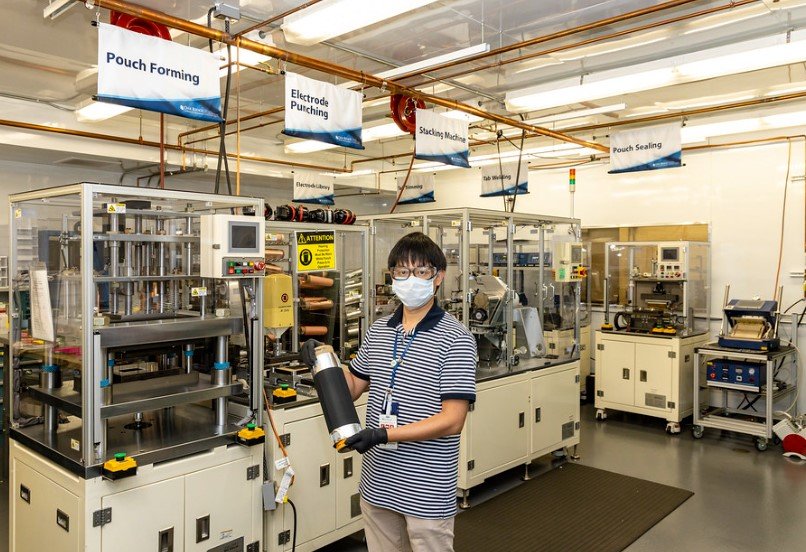A major US immigration raid has thrown a wrench into plans for a key electric vehicle battery plant in Georgia, run by South Korean giants Hyundai and LG Energy Solution. The raid, which led to hundreds of arrests, has pushed back the facility’s launch and raised concerns about supply chains and international investments.
Details of the Recent Raid
Federal agents swept into the construction site in Ellabell, Georgia, last Thursday, detaining 475 workers in one of the largest immigration operations in recent years. Most of those arrested were South Korean nationals, sparking quick diplomatic tensions between the US and South Korea.
The raid targeted the Hyundai Mobis and LG Energy Solution joint venture, aimed at building batteries for electric cars. Officials said it stemmed from a months-long investigation into visa violations and unauthorized workers. Video from the scene showed agents leading away shackled workers in hard hats and vests marked with company names.
South Korea’s government reacted fast, chartering a plane to bring many detainees home. Foreign Minister Cho Tae-yul called the arrests deeply concerning and promised support for the affected workers.
Reasons Behind the Production Delay
LG Energy Solution confirmed the plant’s production start, originally set for late 2025, is now delayed until the first half of 2026. Company officials cited market conditions as the main reason, but the raid has added uncertainty by halting construction and raising questions about workforce stability.

The facility was planned to produce 30 gigawatt-hours of batteries each year, enough to power hundreds of thousands of electric vehicles. Hyundai and its sister company Kia rely on this output to meet growing demand in the US market.
Experts point out that visa issues for skilled foreign workers have long plagued such projects. South Korean firms often bring in specialists for complex builds, but strict US rules can lead to compliance problems.
A timeline of key events shows how things unfolded:
| Date | Event |
|---|---|
| May 2025 | Samsung issues internal guidelines on US travel visas to avoid issues. |
| August 2025 | Presidents of US and South Korea meet to boost trade ties. |
| September 5, 2025 | ICE raid detains 475 at Georgia site. |
| September 6, 2025 | South Korea announces plane to repatriate workers. |
| September 8, 2025 | LG confirms delay to 2026. |
Impact on Companies and Supply Chains
The delay could ripple through the electric vehicle industry, where timely battery supplies are crucial. Hyundai has invested billions in US manufacturing to secure its spot in the growing EV market, and any hiccup might slow production of models like the Ioniq series.
LG Energy Solution, a major player in global batteries, faces potential setbacks in meeting contracts. Shares for both companies dipped slightly after the news, though analysts say the market had already priced in some risks from broader economic slowdowns.
Other South Korean firms are watching closely. For instance, similar visa concerns hit a SK Battery plant in Georgia back in 2020, leading to arrests and deportations. This pattern highlights ongoing challenges for foreign investments in US tech sectors.
Diplomatic and Economic Fallout
The raid comes at a tense time, just weeks after US President Donald Trump and South Korean President Lee Jae-myung signed a trade pact worth $150 billion in investments. Trump stressed the need for legal immigration, urging companies to bring in talent through proper channels.
South Korea has voiced worries that such actions could chill business expansions. Officials in Seoul are pushing for clearer visa paths to support their firms’ growth in the US, especially in critical areas like clean energy.
On the US side, the operation aligns with efforts to enforce immigration laws and boost domestic jobs. Georgia Governor Brian Kemp has faced criticism for state programs that some say enabled the hiring of unauthorized workers.
Key economic effects include:
- Potential loss of jobs if construction drags on.
- Higher costs for Hyundai and LG to recruit and train new staff.
- Broader risks to US EV goals, as foreign expertise fills skill gaps in battery tech.
Looking Ahead for EV Investments
As the dust settles, industry leaders are calling for reforms to make it easier for skilled workers to enter the US legally. This could involve expanding visa programs for tech and manufacturing roles.
For now, the Georgia plant remains a symbol of both opportunity and challenge in the push for homegrown EV production. Automakers like Hyundai must navigate these hurdles to stay competitive against rivals like Tesla and Ford.
What do you think about this delay and its effects on the EV market? Share your thoughts in the comments and pass this article along to spark discussion.
